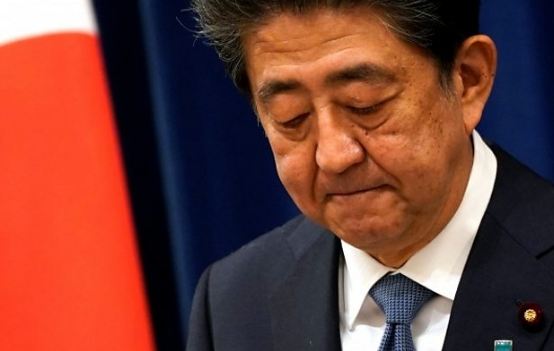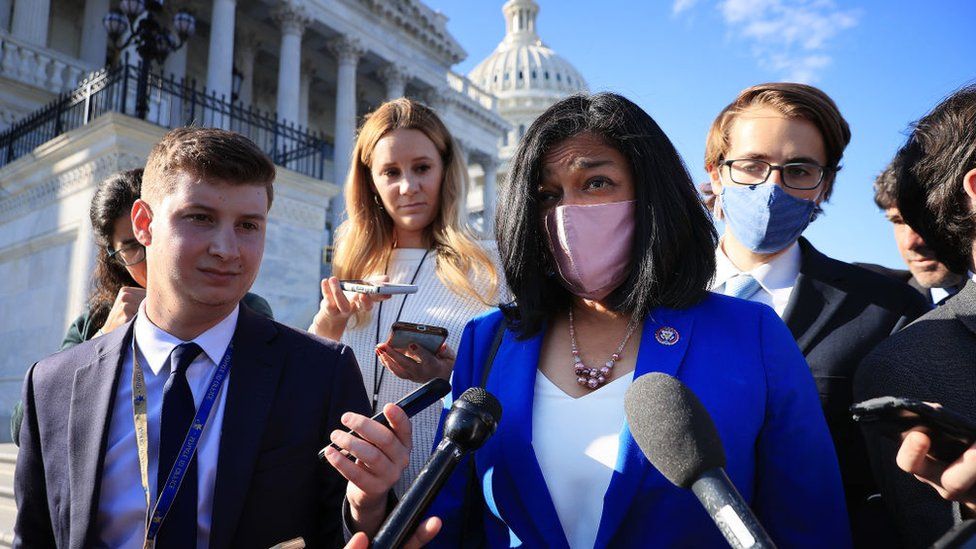Shinzo Abe: Japan's PM resigns for health reasons

Japanese PM Shinzo Abe has announced his resignation for health reasons.
He said he did not want his illness to get in the way of decision making, and apologised to the Japanese people for failing to complete his term in office.
The 65 year old has suffered for many years from ulcerative colitis, an inflammatory bowel disease, but he said his condition had worsened recently.
Last year, he became Japan's longest serving prime minister. His current period in office began in 2012.
He will remain in his post until a successor is chosen.
In 2007 he resigned abruptly from an earlier term as prime minister because of his struggles with ulcerative colitis, a chronic condition that he has lived with since he was a teenager.
Mr Abe has a reputation as a staunch conservative and nationalist, and for stimulating growth with his aggressive economic policy known as "Abenomics".
He has strengthened Japan's defences and boosted military spending, but has been unable to revise the constitution's pacifist Article 9, which bans a standing army for anything other than self-defence.
What did Mr Abe say?
The prime minister said his health started to decline as his ulcerative colitis made a resurgence around the middle of July.
He was now receiving a new treatment for the condition which had to be administered on a regular basis and would not give him enough time to carry out his prime ministerial functions, he added.
He said he could not make any mistakes in terms of important decision making, and therefore had decided to step down.
"I made a judgement I should not continue my job as a prime minister," he said.
"I would like to sincerely apologise to the people of Japan for leaving my post with one year left in my term of office, and amid the coronavirus woes, while various policies are still in the process of being implemented," he added, making a bow.

Stability and scandal
By Yuko Kato, Digital editor, BBC News Japan
Prime Minister Abe has long suffered from chronic ulcerative colitis. The disease forced him to resign in 2007 - the first time he headed the government.
Now, after weeks of speculation about him being absent from the public eye despite a worrying uptick in Japan's coronavirus cases, he is resigning yet again due to the same illness.
As the longest-serving Japanese prime minister, he leaves behind a legacy of stability and a strong centralised power base that allowed forceful stimulus policies to revive the economy. He also improved relations with the US by courting President Donald Trump, often on the golf course.
Yet his government was also mired in scandal, including talk of favouritism and wilful destruction of public records. When the pandemic struck, his responses were often criticised as being slow, ineffective, and out of touch.
And perhaps importantly for Mr Abe, his cherished - and highly controversial - wish to revise Japan's pacifist constitution under his watch, has come to naught, at least for now.

 REUTERS
REUTERSWhat happens now?
Mr Abe said he would "firmly execute my duty to the end" until a replacement was chosen.
His announcement will have automatically triggered a vote within his Liberal Democratic Party (LDP) to replace him as leader.
This election will be followed by a parliamentary vote to elect a new prime minister.
Potential successors have already emerged, including Deputy Prime Minister Taro Aso, Chief Cabinet Secretary Yoshihide Suga, and LDP policy chief Fumio Kishida, who is rumoured to be Mr Abe's choice.
None are expected to deviate significantly from the government's current policies.
The winner would hold the post until the end of Mr Abe's term in September 2021.









Comments